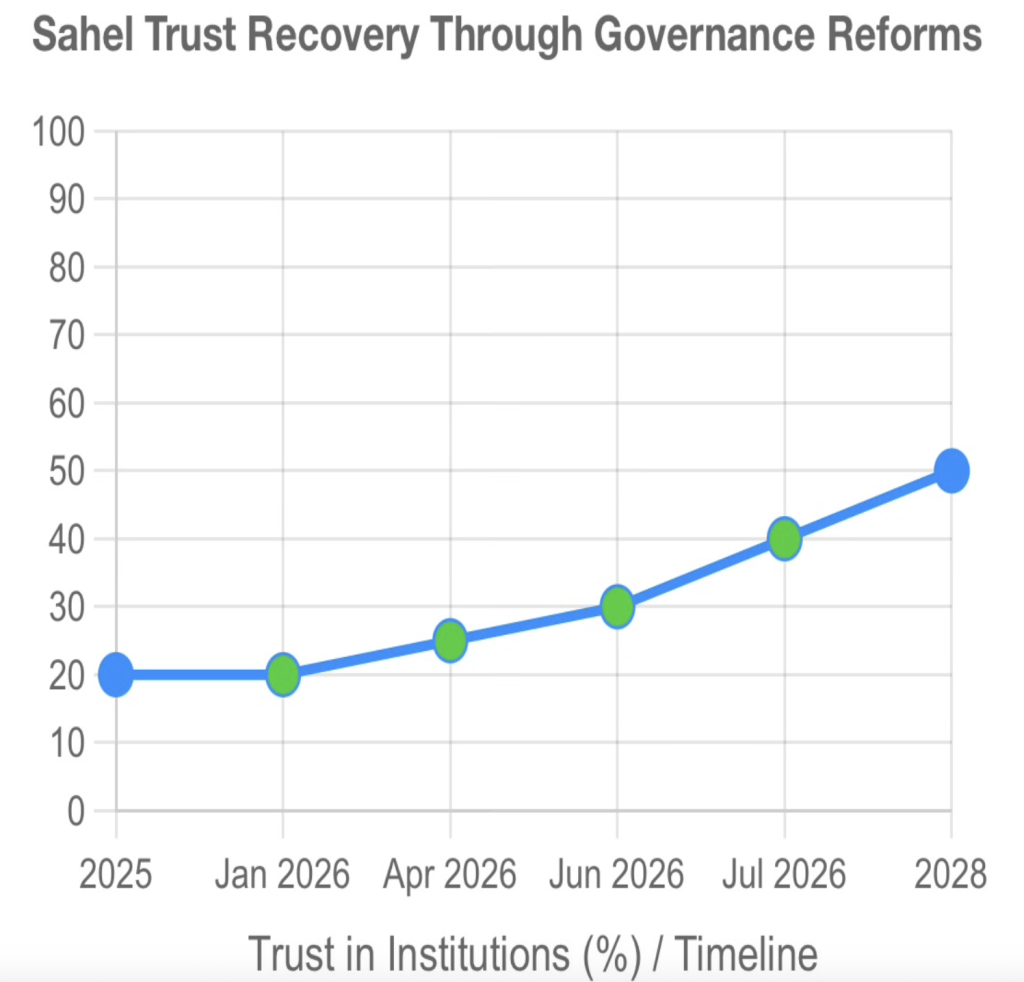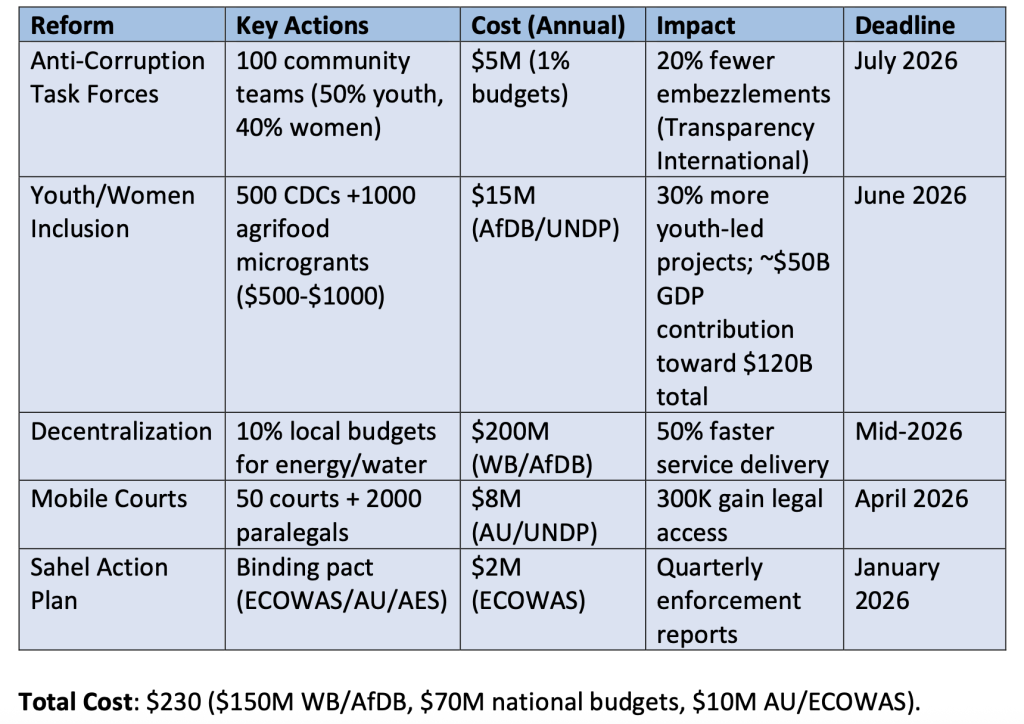July 31, 2025 | For Decision-Maker Review
Executive Summary
The Sahel’s 350 million people face a governance crisis fueling poverty, instability, and
extremism. Six coups since 2020, corruption, and exclusion of youth and women erode
trust, with 71% of extremist recruits citing governance failures. The Sahel Governance
Forum (SGF) in Banjul, themed “The Future of Governance: (Re)building Social Cohesion
and Public Trust,” risks fading into rhetoric. This brief demands immediate reforms to
unlock $120 billion in annual GDP through youth agrifood jobs, ensuring transformative
change.
Why Act Now?
Weak governance stifles the Sahel’s potential. Four countries rank among the world’s
ten least developed, with 3 years average schooling (vs. 7.8 globally) and 50% lacking
electricity. Coups, 2.8 million displaced, and climate shocks deepen crises. With 60%
under 25, 44% of working youth rely on agrifood jobs. Empowering them could unlock
$120 billion in Sahel GDP, part of a $1.5 trillion global potential (FAO-World Bank). The
SGF, hosted by The Gambia, UNDP, Goodluck Jonathan Foundation (GJF), and
International IDEA, must drive action, not serve organizers’ agendas.
Key Challenges
• Eroded Trust: 80% of Malians distrust institutions (Afrobarometer).
• Weak Systems: Only 20% of Sahel countries meet administrative benchmarks.
• Instability: Coups disrupt democracy.
• Exclusion: Youth (60% under 25) and women are sidelined, fueling unrest (e.g.,
#EndSARS).
• Corruption: Most Sahel countries score below 40/100 (Transparency International).
Visual Callout: The Sahel’s Governance Crisis
• 71%: Extremist recruits citing governance failures.
• 3 years: Average schooling vs. 7.8 globally.
• 50%: Population without electricity.
• $120 billion: Potential annual GDP boost from youth agrifood jobs.Trust Recovery Curve
Figure 1: Trust Recovery Curve, projecting a 20% trust increase by July 2026
(Afrobarometer baseline) through key reforms.

Priority Reforms: Cost, Impact & Timeline
Table 1: 12-Month Action Plan

Risk Matrix
Table 2: Mitigation Strategies

Ensuring Impact
Skepticism about the SGF is warranted—forums prioritize optics. To deliver:
• Community Power: CDCs and youth hold governments accountable.
• Quick Wins: Mobile courts and agrifood microgrants show results fast.
• Public Pressure: #IAMSAHEL and media amplify demands.
• Oversight: Civil society tracks progress via scorecards.
Outcomes
• By July 2026: 20% trust increase (Afrobarometer), 500 CDCs, 50 mobile courts.
• By 2028: 30% youth/women in governance; 10% better corruption scores.
• By 2030: 50 million electrified, $120B GDP boost.
Call to Action
The SGF must catalyze change. Governments, ECOWAS, AU, and partners must fund and
implement these reforms to transform the Sahel.
Contact
For details or the “Future of Governance in the Sahel” report:
• Government of The Gambia, UNDP, Goodluck Jonathan Foundation, International
IDEA
• Email: sgf-secretariat@sahelgovernance.org
• Website: www.undp.org/africa/sahel-governance